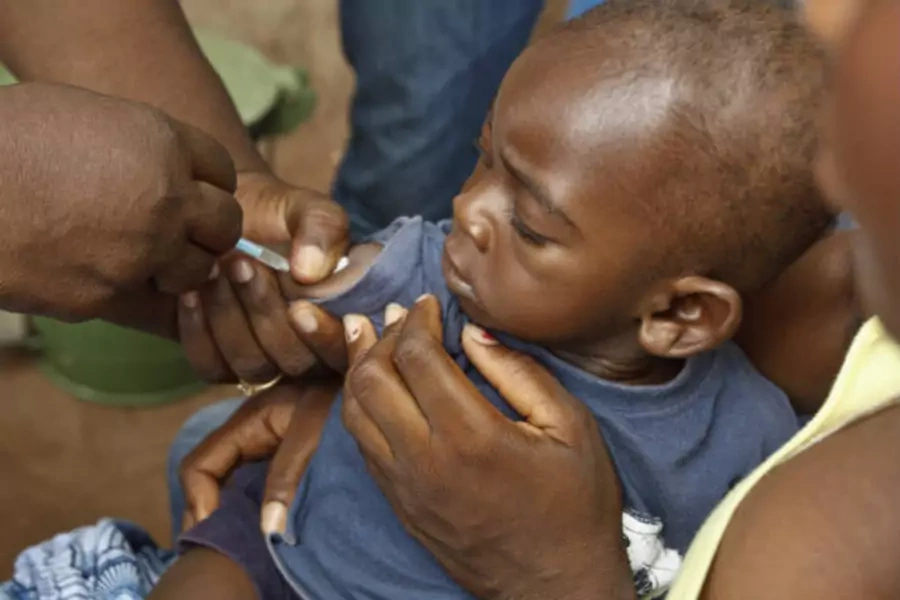Emerging Voices: Nicole Hassoun on Fair Trade for Health

More on:
Emerging Voices features contributions from scholars and practitioners highlighting new research, thinking, and approaches to development challenges. This article is from Nicole Hassoun, assistant professor of philosophy at Carnegie Mellon University. Hassoun outlines a proposal from her new book, Globalization and Global Justice: Shrinking Distance, Expanding Obligations, to create a Fair Trade Health label as an incentive for pharmaceutical companies to invest in medicines needed by the global poor.
Antiglobalization protesters believe that we need to radically change, or even eliminate, many international institutions because these institutions’ policies impoverish poor people. Proponents of globalization disagree. In my recent book Globalization and Global Justice: Shrinking Distance, Expanding Obligations, I take a middle path. I argue that there are many coercive international institutions, like the International Monetary Fund and World Trade Organization, that should be doing much more to help people avoid severe poverty, which requires changing many international policies. But there is also a role for individual consumers and companies to play in improving people’s lives.
A central policy proposal in Globalization and Global Justice is to create Fair Trade medicines. Although this will not solve all of the problems poor people face, it may help them secure some of the things they often lack—in particular, access to life-saving medicines, like antibiotics or HIV drugs. This proposal will also encourage companies to do research on and create new medicines like malaria or HIV vaccines.
In the book I suggest rating pharmaceutical companies on the basis of their drugs’ global health impact. The best companies, in a given year, would then be given a Fair Trade Health label to use on all their products–everything from lip balm to pet vitamins. The key to a successful Fair Trade Health campaign is designing a good rating system for companies’ efforts to promote global health. So, researchers at Carnegie Mellon, the University of Pittsburgh, and SUNY Binghamton are trying to construct a system that evaluates companies on the basis of their drugs’ impact on global health. To evaluate this impact, researchers are considering three things:
- The need for several important drugs for diseases that primarily affect the global poor.
- The drugs’ effectiveness.
- The number of people who can access the drugs.
Each company would be rated on how the drugs it produces measure up in these three categories. The company’s score would be the sum of its drugs’ impacts.
Highly rated companies will have an incentive to use the label to get a larger share of the market. If Pfizer, for example, were a highly rated company it might use a Fair Trade Health label on Advil. If even a small percentage of consumers or doctors preferred Fair Trade Health products, the benefits of using this label could be significant. The market for over-the-counter painkillers alone is worth approximately US$2 billion per year. Insurance companies (both public and private) might even include Fair Trade Health drugs in their formularies. Global Health Impact companies could also use the Fair Trade Health label on their full range of products. If consumption of Fair Trade Health goods reached one percent of the market in generic and over-the-counter medications, that might create about $360 million-worth of incentives for pharmaceutical companies to become Fair Trade Health certified by expanding access to effective medicines needed by the global poor. Further, socially responsible investment companies could include Global Health Impact companies in their portfolios.
Finally, having a Fair Trade Health certification system for pharmaceutical companies would open the door to all kinds of fruitful social activism including boycotts of poorly rated companies, lobbying of insurance companies to include Fair Trade Health products in their formularies, and so forth. One possibility is a Fair Trade Health licensing campaign. Pharmaceutical companies rely, to a large extent, on university research and development. So, if universities allow only certified companies to benefit from their technology, companies will have an incentive to abide by Fair Trade Health standards. Just one percent of the university research and technology market is worth some $840 million, which is more than the cost of developing a new drug, even under the highest estimates. This level of incentives might double the number of drugs produced for neglected diseases. Indeed, the Fair Trade Health certification system gives companies a reason to produce drugs that will save millions of lives.
For more information, see the project web site at Academics Stand Against Poverty. Also see: Nicole Hassoun. 2012. “Global Health Impact.” Developing World Bioethics. Early view available here.
More on:
 Online Store
Online Store